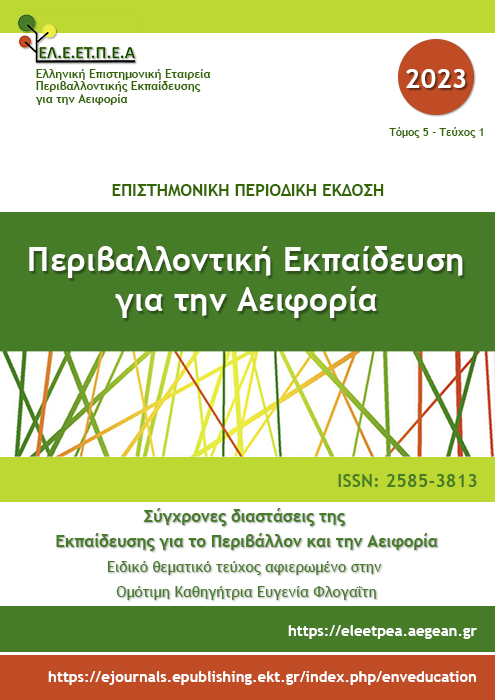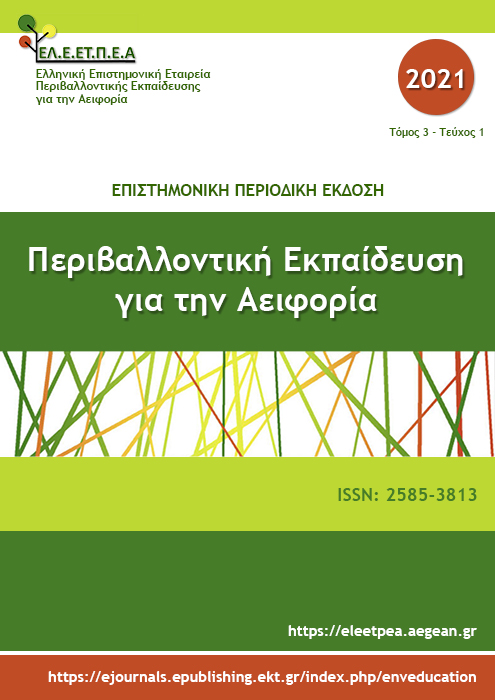Ολιστική Σχολική Προσέγγιση: Μια ολοκληρωμένη παιδαγωγική θεώρηση για την Εκπαίδευση για την Αειφόρο Ανάπτυξη
Abstract
The Whole School Approach (WSA) is a comprehensive educational proposal in relation to the reorientation of educational systems towards sustainability models. It requires changes in the structure and operations of schools and entails a radical revision of the teaching/learning process and learning content, elements that can determine the promotion of institutional, social and cultural changes. At the same time, it establishes transformative learning as a fundamental concept for how individually and collectively, we can review our behavior, reposition ourselves in society and realise our potential for change based on the principles of sustainability. An important question, remains, how the vision for education can be redefined as a whole, so as to make possible the OSP that will make the school, as an organic part of society, a shareholder in its sustainable transformation. This paper examines theoretically the concept and content of WSA in relation to Education for Sustainable Development (EDS) and transformative learning as a demand for ESD, but also a structural element of ESD. The qualities that make WSA a comprehensive approach, and the challenges that constitute important inhibiting factors, are analysed, in an effort to transform schools into learning communities for sustainability.
Article Details
- How to Cite
-
Ζαχαρίου Α., & Κάτζη Χ. (2023). Ολιστική Σχολική Προσέγγιση: Μια ολοκληρωμένη παιδαγωγική θεώρηση για την Εκπαίδευση για την Αειφόρο Ανάπτυξη. Environmental Education for Sustainability, 5(1), 163–176. https://doi.org/10.12681/ees.35778
- Section
- Articles

This work is licensed under a Creative Commons Attribution-NonCommercial-ShareAlike 4.0 International License.
Authors retain copyright and grant the journal right of first publication with the work simultaneously licensed under a CC-BY-NC-SA that allows others to share the work with an acknowledgement of the work's authorship and initial publication in this journal.



